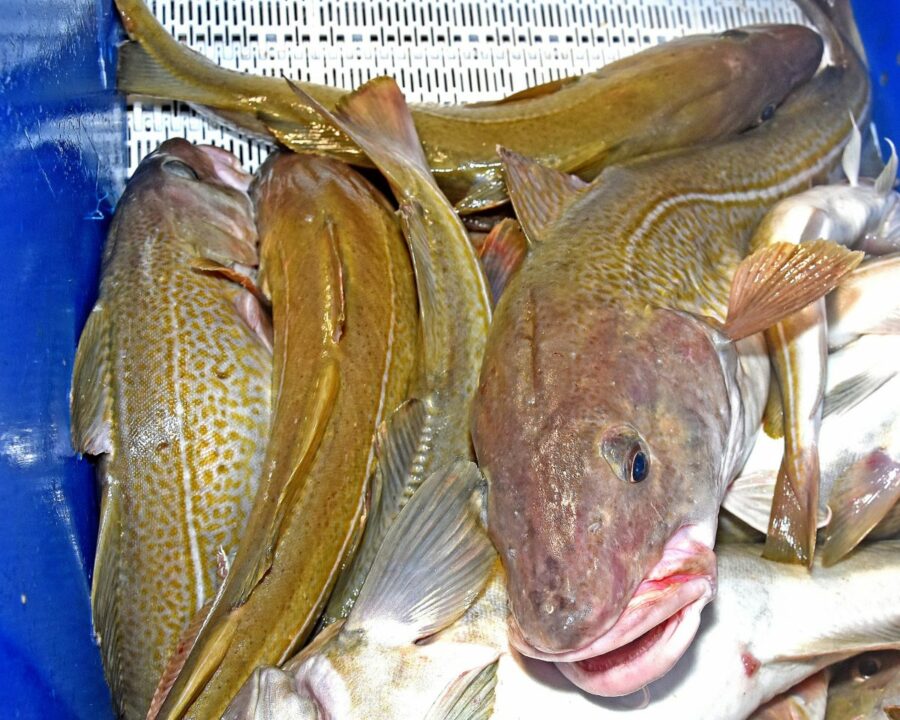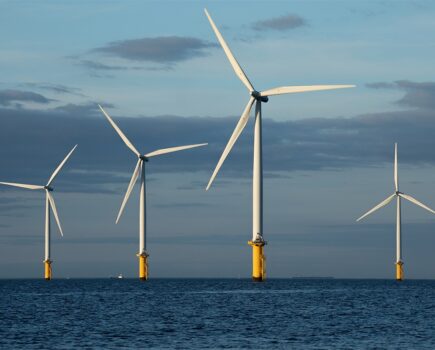N Sea cod cuts will hit Scots fleet
Tight restrictions from 1 July
Fishermen working in the northern North Sea look set to be hit next month with new restrictions aimed at protecting cod stocks, reports Tim Oliver.
The European Commission has proposed new ‘remedial’ measures in an amended TACs and quotas regulation that aims to cut cod catches by 50%.
The restrictions will apply in the area from north of 58°30’N up to 61°30’N – roughly from 30 miles north of Fraserburgh up to well north of Shetland – and are set to come into force on 1 July if the Council of Ministers approves the amended regulation.
Scottish demersal fishermen working in this area will all be hit by the measures. They will be heavily restricted in their efforts to catch the quotas of other species they catch in the mixed fisheries of the region, even though they do not target cod.
Vessels – apart from pelagic vessels – will not be allowed to fish in the area unless they have a minimal cod catch or comply with a range of complex restrictions on the gear they use.
There are a range of derogations according to mesh size and gear being used, including a minimum catch of 5% cod and a wide range of ‘regulated and highly selective’ bottom trawls or seines, which must reduce cod catches by at least 30-50%.
Another exemption from the measures will apply if individual member states impose their own national cod avoidance measures through spatial and/or technical measures. These must deliver cod catches that are at least 50% lower than 2019 levels.
A further derogation will be allowed to vessels that install remote electronic monitoring so that their fishing is fully documented.
Member states must also enhance monitoring, control and surveillance of vessels fishing in the restricted area.
Restrictions on North Sea cod catches were in the pipeline from the beginning of this year, after the TAC was cut by 50%. The industry blamed the Commission’s rigid approach to achieving MSY for the North Sea cod stock by 2020 for the cut. Fishermen’s leaders from all the countries affected by the cut set up an international group to work on their own proposals to reduce cod catches.
The UK delegation was led by Mike Park, chief executive of the Scottish White Fish Producers’ Association (SWFPA). He said that the cross-industry cod group was continuing to liaise with the Commission to suggest it was not appropriate to introduce such severe regulations at a time when the industry was trying to recover from the effects of the Covid-19 pandemic.
“The activity of the fleet in terms of the cod stock has been decreased for six months of the year, but notwithstanding, we still think the restrictions are going to be in place by 1 July,” he told Fishing News.
“These restrictions will cause problems for the fleet. They set out a range of measures between 58°30’N and 61°30’N, basically saying ‘you can’t operate within this area unless you do the following’, and then it sets out pretty strong restrictions.
“We operate in a very complex mixed fishery, and whatever you put in place to restrict catches of cod, you essentially reduce the catches of everything else. The Scottish fleet does not target cod – it catches cod along with a number of other species, so whatever you do to reduce the ability of the fleet to catch cod, you just halve the overall economic output. It affects the whole demersal fleet, very much so.”
He said that the weakness of the proposed amendment that allows member states to set up their own measures was that any UK measures would not apply to non-UK vessels – a point ‘strongly made by our members’.
In particular, if real-time closures (RTCs) were set up to protect abundances of cod, other member states would be able to access these areas while UK/Scottish vessels would be banned.
Slow recovery from pandemic
Assessing the fleet’s recovery from the effects of Covid-19, Mike Park said that there was a bit more equilibrium coming back into the whitefish sector. Some export markets had opened up, and some of the home processors supplying the home market had started working again, so there was ‘a degree of normality’ returning.
There was still some disparity between supply and demand, especially for small haddock, which created a large variability in the price, and prawns still remained an issue.
“There are some openings for fresh prawns to be sold, but the core of the problem is still a lack of exports to the Continent, and that a lot of processors still hold a significant amount of stock in their freezers,” he said.
“There are some openings for some small amounts of Nephrops from some of the vessels, but a number have now tried to diversify, operating in more southerly North Sea waters for flatfish, and some have moved basically to fish for monkfish and megrim in the northern North Sea as well.
“A relaxation of Covid-19 rules will help. Some elements on the Continent are starting to relax as well, so hopefully things will gradually return to normal.”
He said there were still similar problems with scallops as with prawns – high-end products that were not going across to the Continent as quickly as they would like, because of problems in the restaurant, hotel and holiday sectors.








